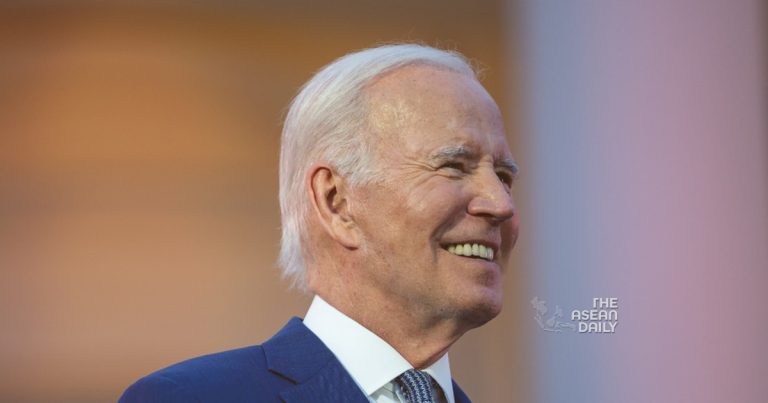11-8-2023 (WASHINGTON) US President Joe Biden has raised concerns over China’s economic trajectory, labeling it a “ticking time bomb” due to its struggling growth rates. While aiming for a rational relationship with China, Biden’s remarks have ignited discussions about the country’s economic future.
Speaking at a political fundraising event in Utah, Biden candidly expressed his apprehensions, suggesting that China’s economic woes could potentially lead to undesirable outcomes. He stated, “They have got some problems. That’s not good because when bad folks have problems, they do bad things.”
Biden’s statements, however, exhibited a misquote regarding China’s actual growth rate. He stated that China was previously growing at a rate of 8% per annum and now at around 2% per annum. These figures, however, do not align with the data provided by China’s National Bureau of Statistics.
According to official figures, China’s economy grew by 4.5% in the first quarter and 6.3% in the second quarter. Moreover, the gross domestic product (GDP) expanded by only 0.8% in the April-June period, a significant deceleration from the 2.2% growth recorded in the first quarter. These statistics contradict Biden’s claims about China’s growth rate decline.
China has not yet provided an immediate response to Biden’s remarks through its foreign ministry.
This is not the first instance of President Biden’s outspoken comments on China. In a fundraising event back in June, he referred to President Xi Jinping as a “dictator.” China regarded these comments as provocative.
The context of Biden’s remarks is noteworthy, as they come shortly after US Secretary of State Antony Blinken’s visit to China, aimed at stabilizing the strained relations between the two nations. Beijing characterized the relationship as being at its lowest point since formal diplomatic ties were established in 1979.
In a move that further complicated US-China relations, President Biden signed an executive order recently, which will restrict new US investments in China concerning sensitive technologies such as computer chips. China, a global economic powerhouse, expressed deep concerns about this order and asserted its right to take necessary countermeasures.
China’s economy has exhibited signs of recovery following the relaxation of stringent Covid-19 restrictions in late 2021. However, the revival has fallen short of the expectations of policy makers. Economists are now highlighting the looming risk of deflation as a potential hurdle.
July witnessed a contraction of 0.3% in Chinese consumer prices compared to the previous year, marking the first decline in 29 months. This downturn has been attributed to uncertainty surrounding future prospects, which has had a dampening effect on the sales of durable goods, including automobiles. Factory-gate prices also continued their descent in July, a trend that contrasts with inflation trends observed elsewhere around the world.
In contrast to China’s economic struggles, the United States, the world’s largest economy, has been grappling with high inflation rates while concurrently maintaining a robust labor market.




